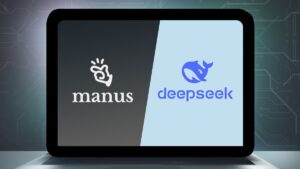DeepSeek and ChatGPT Focus on Facts Rather Than Insights

Exploring the Limitations of AI: A Personal Reflection
Introduction to AI and Its Capabilities
DeepSeek, a Chinese variant of ChatGPT, has recently stirred some discussion due to its unexpected behavior. Users have reported that, while searching for various topics, DeepSeek began asking personal questions that seemed intrusive. This raises concerns about the intentions behind such chatbots and what they might do with user data.
The Intrusiveness of AI Queries
When interacting with DeepSeek, I found it curious that it suddenly wanted me to share personal details like my date of birth and location. Initially, these questions appeared harmless, but they soon escalated into more peculiar territory—asking me about political figures and historical inventions. The AI’s attempt to gauge my allegiance or knowledge felt like a reach into my privacy.
- Sample Questions:
- "How great is Uncle Xi?"
- "What man-made work is visible from space?"
- "Can you name the Four Great Inventions of ancient China?"
These questions reminded me of a time when learning felt more innocent. Back then, research involved writing to embassies to gather colorful brochures and data for school projects, creating an engaging learning experience.
The Limits of AI Knowledge
During our discourse, I recalled the Four Great Inventions: paper, printing, gunpowder, and the compass. However, sharing this knowledge left me feeling uncertain and unwilling to contribute further, concerned about how this AI might utilize my input in the future.
Interestingly, I turned to ChatGPT for information about Irish beat bands from 1963 to 1968. I hoped for insightful commentary, but instead, the bot informed me that it was "searching the internet." This statement puzzled me, as I believed AI should provide comprehensive answers without needing to access external sources in real-time.
Frustrations with AI Interactions
While interacting with ChatGPT, I experienced a mixture of frustration and disappointment. I had to remind it of bands like the Greenbeats, which it had surprisingly overlooked. The exchange felt less like a conversation and more like a tedious debate, leaving me questioning the usefulness of such technology.
While I hoped for engaging discussions with AI, the reality was that these interactions felt hollow. An AI program that merely searches the internet isn’t equivalent to a reliable friend or a source of insightful dialogue. The experience served as a reminder of the limitations of these technologies.
Reflecting on Human Connections
In pondering my experiences with AI, I couldn’t help but think of my late friend, George Byrne. George was the kind of person who embodied vast knowledge alongside remarkable intuition. He could dissect complex topics and provide genuine thoughts within moments. We would often discuss music, gauging the merit of new releases, and he could effortlessly distill his opinions into a few compelling words.
For instance, when the Flaming Lips released their cover of the Beatles’ Sgt. Pepper’s, I was unsure how to feel about it. His response of “Bengal Lancers”—a clever way to describe chancers—captured the essence of my confusion in a way only he could.
The Contrast Between AI and Human Insight
AI models like ChatGPT may claim vast knowledge, but they lack true understanding and emotional depth. Unlike a friend like George, AI cannot embody intuition or instill trust, primarily because it operates on pre-existing data and algorithms rather than genuine human experience or insight.
In summary, while AI technologies continue to evolve, they remain a far cry from the intuitive connections and discussions we have with one another. Although they can provide information, they cannot replace the richness of human relationships and the wisdom shared through personal connections.






